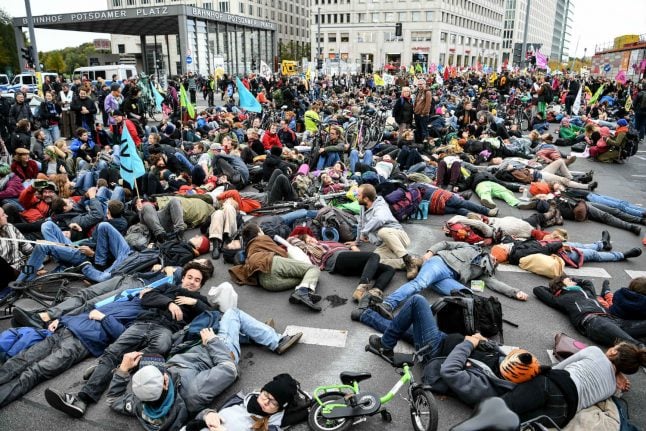In an interview with the Sonntags Blick newspaper, Calmy-Rey said the Swiss government decision is in line with the United Nations resolution aimed at imposing a no-fly zone over the north-African country. A British military air convoy has already crossed the landlocked alpine country as part of the same resolution.
“Switzerland recognizes the resolution demanding an immediate ceasefire in Libya and that civilian population be protected from a massacre by (Muammar) Ghaddafi and his troops,” she told the paper.
“On this basis, the Federal Council last week approved the passage of a British military convoy and authorized the Federal Office of Civil Aviation to grant overflights, as long as they are based on the UN Security Council 1973 resolution. But would the actions of the international community go beyond the boundaries of the resolution, then Switzerland would apply the law of neutrality and refuse to grant permits.
According to Calmy-Rey, the notion of neutrality – which has allowed Switzerland not to take part in any war in modern history – does not mean ignoring violence against civilians.
“Neutrality does not mean indifference,” Calmy-Rey was quoted as saying by the paper. “Neutrality means, however, that we must not take part in a war between states.”
She also stated that the conflict in Libya is not a war of the international community against Ghaddafi, but instead it is an intervention to “protect the civilian population.”
“In the country itself, there are riots, fighting between rebels and soldiers loyal to Ghaddafi. There is actually a civil war. It is incredible, but Ghaddafi makes war against his own people. He has also announced exactly that.”





 Please whitelist us to continue reading.
Please whitelist us to continue reading.